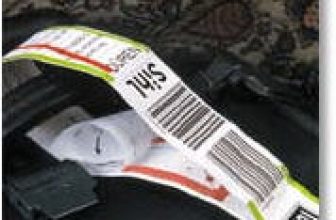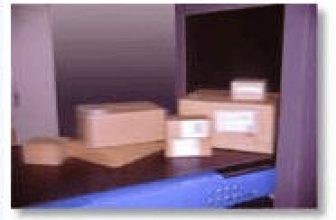
Aman Aviation MRO tool tracking uses RFID tags
[ad_1]
More and more aviation companies are implementing RFID not only for tracking tools, but also for improving the automation of foreign object damage (FOD) and support for maintenance, repair and overhaul (MRO) processes. Aman Aviation is one of them. He is the Indian Aircraft Parts Maintenance and Repair (MRO) organization. It will cooperate with Dolphin RFID to promote the implementation of RFID-based technology in the Indian civil aviation sector. Compared with paper records and manual tool search, the use of RFID automated systems can help Aman Aviation save time. RFID can also improve the accuracy of reports and provide real-time tool status information, which will save a lot of time on the ground for aircraft calls, increase the number of flights, make Air India more cost-effective and profitable, and maintain a high level of safety.

Since tags are required to be affixed to tools, parts or other assets, as long as they are in service, the tags must maintain reliable performance, so MRO is one of the harshest environments for RFID tag applications. RFID can establish a physical link between the physical object and the information that operates safely and efficiently. Even after several years of exposure to extreme heat, oil, dirt, hydraulic fluids, cleaning agents and other challenging materials, and other common aerospace business conditions, Xerafy industrial-grade high-strength high-temperature tags can reliably read information every time.
Xerafy has cooperated with Boeing and Airbu on similar projects by virtue of its efficient RFID tags and RFID tool tracking applications. Industrial-grade high-strength high-temperature tags Dot XS tags (6mm diameter, 2.5mm thickness, read and write distance of 1.5 meters/5 Feet), Dash XS (12*3*2.2mm, read and write distance of 2 meters/6.6 feet)-with its compact size and excellent read and write distance, and read reliability when applied to metal parts. Dolphin RFID chose them for tool tracking.
According to Aman Airlines, India’s new civil aviation policy, which allocates funds from the airport patent fees they operate to support MRO, can save 20% of operating costs. These savings will be used to implement technologies, such as RFID, to improve economic efficiency, security and ensure the punctuality of Indian tourists. The Dolphin RFID solution is based on the use of its own Jave software, Edge Wizard, which supports efficient asset and inventory tracking at all stages in the complex supply chain, from manufacturers to tax declaration shops and end users, as well as accurate aircraft cloud maintenance management.
RFID tool tracking case
The business case of RFID in this environment is very clear and has been well proven in the aerospace field. The main challenge is to find the most suitable installation method and software combination for RFID tags to ensure that the tools can be accounted for at all times for reasonable maintenance. Aman Aviation plans to first implement solutions for its own MRO activities. Then Aman hopes to be able to promote his solution to Air India in the third quarter of this year.
[ad_2]





